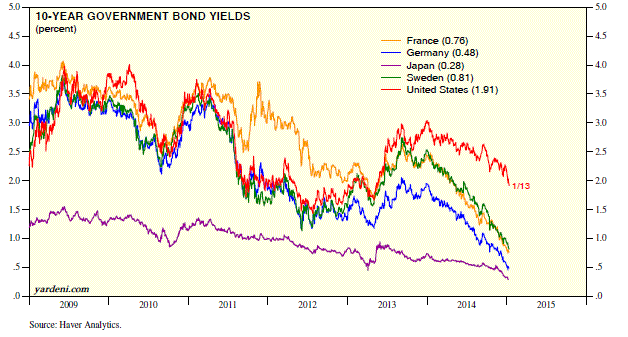
Forex scalping is possible if you choose currency pairs that have higher volatility. This will allow you to trade more often. Additionally, you should select a broker that doesn't have a dealing desk, since refusal to open a trade can have disastrous consequences for your trading account. The most popular Forex scalping strategies are Bollinger bands and moving averages. They also identify trading opportunities. A professional trader may prefer to manually execute the trade.
Trading in the early hours of the day
Forex trading is best done in the early morning and late afternoon. These hours are when the market tends to be at its most volatile so scalpers like this time. This is also a good time to trade news releases and option expiries. This time is ideal for scalpers to use either manual or automated strategies. Trading during these hours has many benefits.

Focusing on a single currency pair or position at one time
When scalping, you should focus on one currency pair or position at a given time. If you have several open positions, it can make your charts difficult to view and could cause you lose focus. The fastest movements will occur on major currency pairs with the most liquidity. Scalping major currency pairs is not a good idea. Instead, you should focus on smaller currency pairs and positions that have more liquidity. This way you can maximize your profits and not compromise your trading strategy.
RSI allows you to forecast the market's future direction
The RSI indicator is an indicator that is used to determine whether a stock is oversold or overbought. The indicator's center line is equal 50. If the indicator is too high, it means that you should either buy or sell. The RSI is more accurate in predicting the mean price of an item than the range. However, RSI can't be used to forecast the direction of the market alone. You should always consider the trend of the underlying asset before using it to make trading decisions.
Common scalping mistakes
Avoiding to reduce your market losses is one of the most common mistakes in scalping. A single loss can cause a lot of losses and wipe out many trades. Scalping requires intense concentration, so traders must not lose sight of the market while making even the smallest moves. Here are some common mistakes in scalping. These are common scalping errors. Learn how to avoid them. Here are three common scalping errors that you should avoid. These are the top three mistakes new scalpers make.

Choose a broker who allows scalping
Scalping can be described as a way to trade quickly and profitably. A scalper could make hundreds of trades per day, each with a small profit. Some brokers allow scalping while others ban it. You should be familiar with the rules and regulations of your broker before you begin to scalp. Here are some key considerations to consider when selecting a forex broker for scalping.
FAQ
What is the role of the Securities and Exchange Commission?
The SEC regulates securities exchanges, broker-dealers, investment companies, and other entities involved in the distribution of securities. It enforces federal securities laws.
What is a bond?
A bond agreement between two parties where money changes hands for goods and services. It is also known by the term contract.
A bond is typically written on paper, signed by both parties. This document includes details like the date, amount due, interest rate, and so on.
The bond is used for risks such as the possibility of a business failing or someone breaking a promise.
Many bonds are used in conjunction with mortgages and other types of loans. This means the borrower must repay the loan as well as any interest.
Bonds are also used to raise money for big projects like building roads, bridges, and hospitals.
A bond becomes due when it matures. That means the owner of the bond gets paid back the principal sum plus any interest.
Lenders are responsible for paying back any unpaid bonds.
How Share Prices Are Set?
Investors set the share price because they want to earn a return on their investment. They want to make a profit from the company. So they purchase shares at a set price. Investors will earn more if the share prices rise. If the share price goes down, the investor will lose money.
Investors are motivated to make as much as possible. This is why they invest in companies. They can make lots of money.
What is the distinction between marketable and not-marketable securities
The principal differences are that nonmarketable securities have lower liquidity, lower trading volume, and higher transaction cost. Marketable securities are traded on exchanges, and have higher liquidity and trading volumes. They also offer better price discovery mechanisms as they trade at all times. However, there are many exceptions to this rule. Some mutual funds, for example, are restricted to institutional investors only and cannot trade on the public markets.
Non-marketable security tend to be more risky then marketable. They are generally lower yielding and require higher initial capital deposits. Marketable securities are typically safer and easier to handle than nonmarketable ones.
A large corporation may have a better chance of repaying a bond than one issued to a small company. Because the former has a stronger balance sheet than the latter, the chances of the latter being repaid are higher.
Because they are able to earn greater portfolio returns, investment firms prefer to hold marketable security.
Statistics
- Even if you find talent for trading stocks, allocating more than 10% of your portfolio to an individual stock can expose your savings to too much volatility. (nerdwallet.com)
- The S&P 500 has grown about 10.5% per year since its establishment in the 1920s. (investopedia.com)
- For instance, an individual or entity that owns 100,000 shares of a company with one million outstanding shares would have a 10% ownership stake. (investopedia.com)
- "If all of your money's in one stock, you could potentially lose 50% of it overnight," Moore says. (nerdwallet.com)
External Links
How To
How can I invest in bonds?
A bond is an investment fund that you need to purchase. The interest rates are low, but they pay you back at regular intervals. This way, you make money from them over time.
There are many ways to invest in bonds.
-
Directly buying individual bonds.
-
Purchase of shares in a bond investment
-
Investing through a bank or broker.
-
Investing via a financial institution
-
Investing in a pension.
-
Invest directly with a stockbroker
-
Investing with a mutual funds
-
Investing through a unit trust.
-
Investing using a life assurance policy
-
Investing with a private equity firm
-
Investing through an index-linked fund.
-
Investing through a hedge fund.